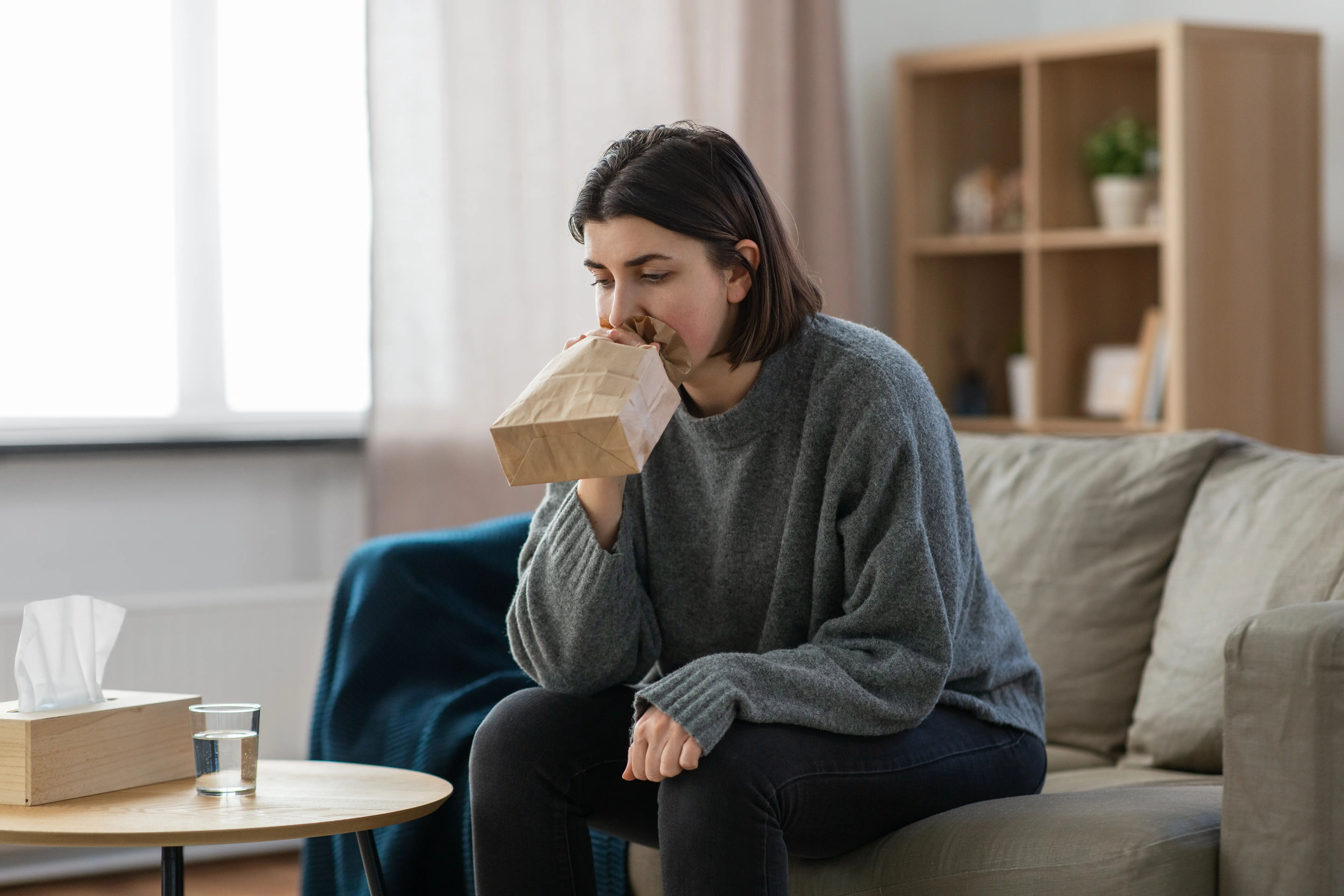Understanding Panic Attacks and Their Symptoms
Learn what panic attacks are, their common symptoms like rapid heartbeat and fear, and how to manage or seek treatment for this intense anxiety condition.

Written by Dr. J T Hema Pratima
Reviewed by Dr. Shaik Abdul Kalam MD (Physician)
Last updated on 13th Jan, 2026

Panic attacks can be overwhelming and frightening, especially if you don’t understand what’s happening. If you or someone you know has experienced sudden, intense fear or discomfort without any obvious reason, you might have had a panic attack. The good news is that panic attacks are manageable, and understanding them is the first step toward coping better.
This article will help you recognise the symptoms, understand the causes, and learn ways to manage panic attacks effectively.
What Is a Panic Attack?
A panic attack is a sudden episode of intense fear or discomfort that peaks within minutes. It can happen unexpectedly, even when there’s no real danger. Many people mistake panic attacks for heart attacks because the symptoms can feel so severe. However, panic attacks are not life-threatening, though they can be distressing.
Common Symptoms of a Panic Attack
Panic attacks can cause both physical and emotional symptoms. Some of the most common signs include:
Rapid heartbeat or palpitations (feeling like your heart is racing)
Shortness of breath or choking sensation
Sweating or chills
Trembling or shaking
Chest pain or discomfort
Nausea or stomach distress
Dizziness or lightheadedness
Fear of losing control or "going crazy"
Fear of dying (even though panic attacks themselves are not dangerous)
Numbness or tingling sensations
These symptoms usually last for about 5 to 20 minutes, though some people may feel anxious for hours afterward.
What Causes Panic Attacks?
The exact cause of panic attacks isn’t fully understood, but several factors can contribute:
1. Genetics
If someone in your family has panic disorder or anxiety, you may be more likely to experience panic attacks.
2. Stress and Trauma
High stress levels, major life changes, or past traumatic experiences can trigger panic attacks.
3. Brain Chemistry
Imbalances in brain chemicals (like serotonin and adrenaline) may play a role in panic attacks.
4. Medical Conditions
Certain health issues (like thyroid problems, heart conditions, or low blood sugar) can mimic or trigger panic-like symptoms.
5. Caffeine, Alcohol, and Drugs
Stimulants like caffeine or withdrawal from alcohol/drugs can sometimes lead to panic attacks.
How Do Panic Attacks Affect Health?
While panic attacks themselves aren’t physically harmful, frequent episodes can impact your life in several ways:
Avoidance Behaviour: Some people start avoiding places or situations where they’ve had panic attacks before (like crowded spaces or driving).
Increased Anxiety: Fear of another attack can create a cycle of anxiety, making future episodes more likely.
Sleep Problems: Panic attacks can disrupt sleep, leading to fatigue and irritability
Social Isolation: If left untreated, panic attacks may cause people to withdraw from friends and family.
How to Manage and Reduce Panic Attacks
If you experience panic attacks, there are ways to cope and reduce their frequency:
1. Practice Deep Breathing
When a panic attack starts, slow, deep breaths can help calm your nervous system. Try inhaling for 4 seconds, holding for 4 seconds, and exhaling for 6 seconds.
Consult Top Specialists
2. Grounding Techniques
Focusing on your senses can bring you back to the present moment. Try the 5-4-3-2-1 method:
5 things you can see
4 things you can touch
3 things you can hear
2 things you can smell
1 thing you can taste
3. Limit Caffeine and Alcohol
These can trigger or worsen anxiety. Try reducing coffee, energy drinks, and alcohol.
4. Regular Exercise
Physical activity helps reduce stress and release endorphins (natural mood boosters). Even a short walk can make a difference.
5. Get Enough Sleep
Poor sleep can increase anxiety. Aim for 7-9 hours of restful sleep each night.
6. Talk to Someone
Sharing your feelings with a trusted friend, family member, or therapist can help reduce anxiety.
7. Cognitive Behavioural Therapy (CBT)
A therapist can teach you techniques to change negative thought patterns that contribute to panic attacks.
8. Medication (If Needed)
In some cases, doctors may prescribe anti-anxiety medications or antidepressants to help manage symptoms.
When to Seek Help?
While occasional panic attacks can be managed with self-care, you should consider professional help if:
Panic attacks happen frequently.
You avoid daily activities due to fear of another attack.
Symptoms interfere with work, relationships, or overall well-being.
If you’re unsure whether your symptoms are due to panic attacks or another medical condition (like heart problems), it’s best to consult a doctor.
How Apollo 24|7 Can Help?
If you or a loved one is struggling with panic attacks, Apollo 24|7 offers:
Online consultations with mental health professionals.
Personalised treatment plans to manage anxiety.
Easy appointment booking for in-person or virtual visits.
You don’t have to face panic attacks alone—help is just a click away.
Conclusion
Panic attacks can be scary, but they are treatable. By understanding the symptoms, recognising triggers, and using coping strategies, you can regain control and reduce their impact on your life. If needed, don’t hesitate to seek professional support—your mental health matters.
Would you like to speak to a specialist? Book a consultation today on Apollo 24|7 and take the first step toward feeling better.
Consult Top Specialists
Consult Top Specialists

Dr. Mohammed Kamran
General Practitioner
5 Years • MBBS, FIDM
Nashik
Apollo 24|7 Clinic - Maharashtra, Nashik

Dr. Shaik Abdul Kalam
General Practitioner
3 Years • MD (Physician)
Visakhapatnam
Apollo 24|7 Clinic - Andhra Pradesh, Visakhapatnam
(150+ Patients)

Dr. Dhankecha Mayank
General Practitioner
6 Years • MBBS
Hyderabad
Apollo 24|7 Clinic - Telangana, Hyderabad

Dr. Vasanthasree Nair
General Practitioner
15 Years • MBBS
Angamaly
Apollo 24|7 Clinic - Kerala, Angamaly
(525+ Patients)

Dr. Rajib Ghose
General Physician/ Internal Medicine Specialist
25 Years • MBBS
East Midnapore
VIVEKANANDA SEBA SADAN, East Midnapore



